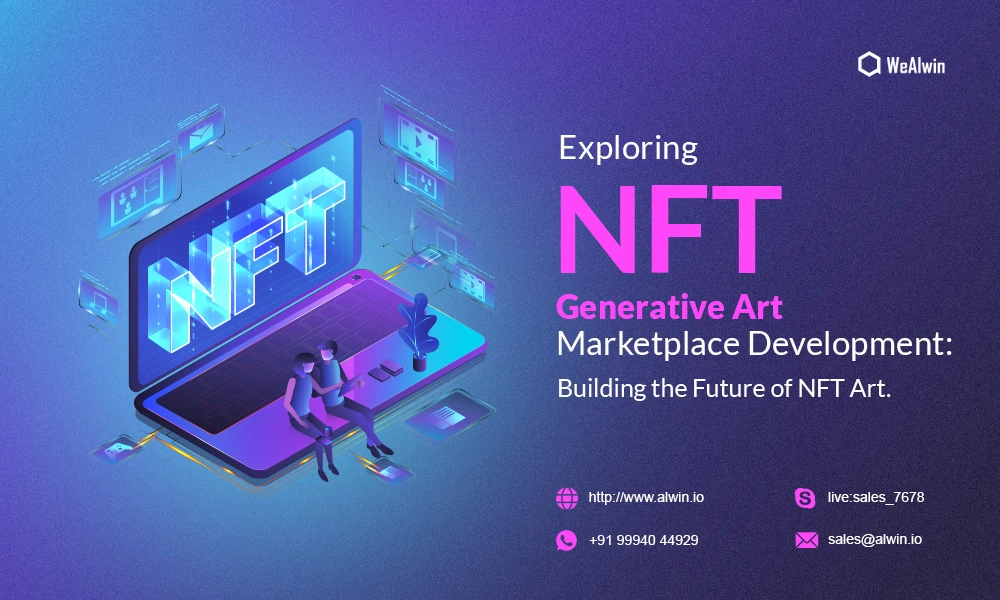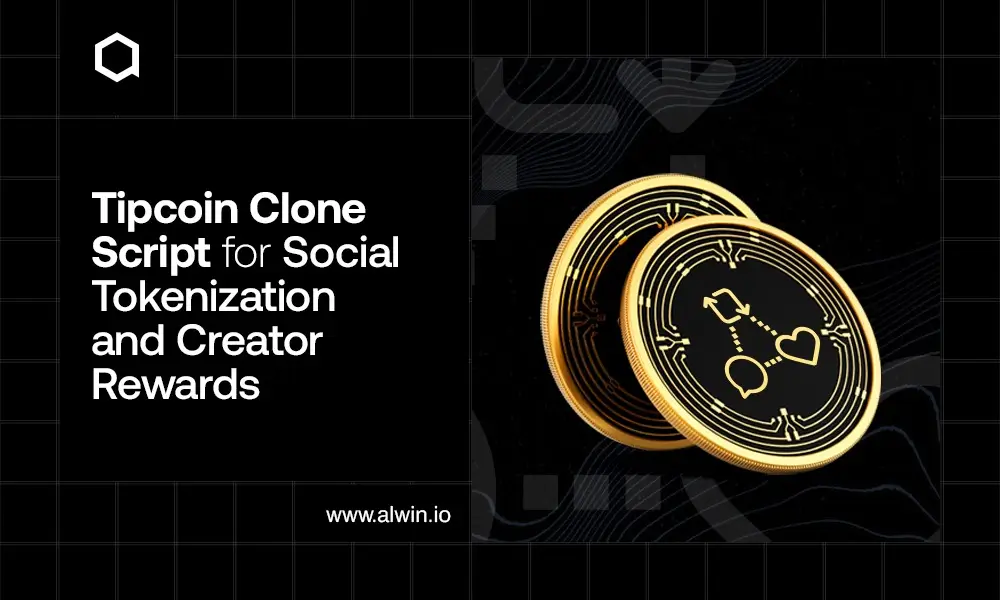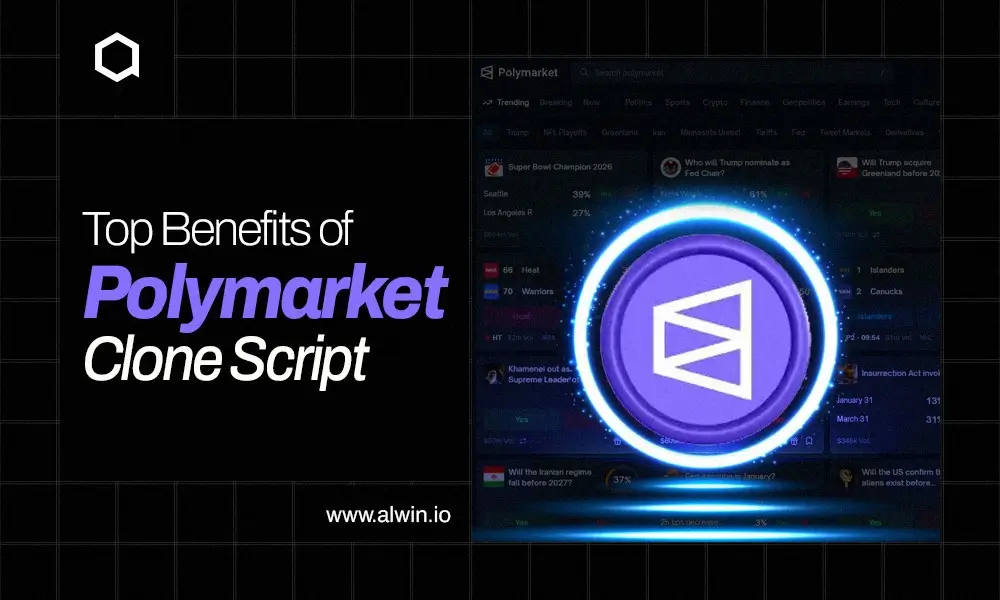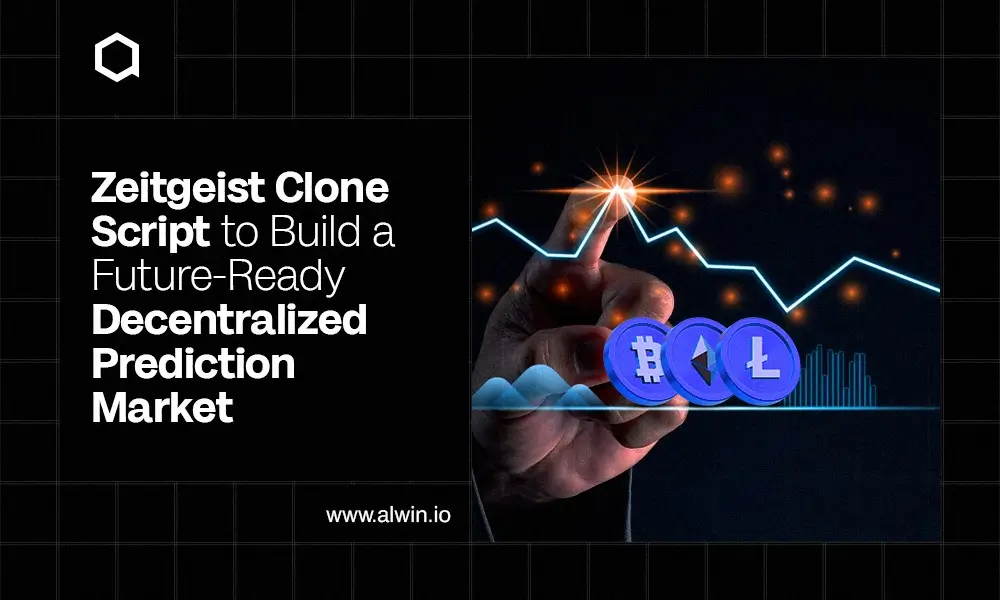The most essential and unique type of art is generative art. This generates content using systems or algorithms. According to Tate Modern, the program was started by the unusual painter Harold Cohen, who was one of those who used computer-controlled robots to produce paintings in the latter half of the 1960s. It has its roots in the Dada art movement. Currently, it is well-known among those who collect and make non-fungible tokens (NFT).
NFT Generative Art Marketplace Development
The digital art revolution, which has ushered in a new era of creation, ownership, and collectibles, is being led by NFT Generative Art Marketplace Development. These cutting-edge platforms give artists a place to display and profit from their works of generative art in the form of non-fungible tokens (NFTs). NFT generative art markets use blockchain technology to enable artists to manufacture and sell unique digital assets that are verifiably rare, irreversible, and really owned by collectors.
These markets provide collectors the chance to buy and sell rare and unique works of digital art, in addition to empowering artists to explore the possibilities of generative algorithms and produce fascinating works of art. The development of the NFT generative art marketplace is changing the future of the art business by revolutionizing how we produce, experience, and value art in the digital domain.
What is Generative NFT Art?
The fascinating and cutting-edge genre of digital art known as "generative NFT art" is produced by the application of computational techniques, code, and algorithms. In contrast to traditional art forms, which are created by hand by the artist, generative NFT art is produced by dynamic, developing systems that provide distinctive, sometimes unanticipated visual results.
Artists write algorithms and specify parameters that determine the rules and limitations for creating artwork, allowing for infinite variants and permutations. Each piece that is created turns into a unique, original digital asset with its own intrinsic worth and scarcity.
In the digital age, generative NFT art offers endless opportunities for artistic expression and challenges conventional ideas of authorship. It is an example of the merging of art and technology, where the artist takes on the role of algorithm designer and curator while working with computer processes to produce compelling and constantly changing artworks that appeal to both collectors and fans.
Consult with our business experts to Build your own NFT Generative Art Marketplace! Chat with us on WhatsApp
How did Generative NFTs Gain Popularity in the Art World?
Because of technological breakthroughs, creative inventiveness, and a shift in view of digital art, generative NFTs have achieved substantial appeal in the art world. With the development of blockchain technology and the emergence of NFTs, artists have discovered a new method for authenticating, tokenizing, and selling their digital works, overcoming the difficulties associated with provenance and ownership in the digital sphere.
Particularly generative NFTs enthralled viewers by utilizing algorithms and computer processes to produce original and changing artworks. This dynamic character, together with the scarcity and verifiability that NFTs offered, drew collectors and enthusiasts by creating a sense of exclusivity and uniqueness. Additionally, generative NFTs have gained support from the digital art community as a ground-breaking combination of technology and artistic expression that pushes the bounds of conventional art forms. The emergence of social media platforms and specialized NFT markets also had a significant influence on establishing a dynamic community and expanding awareness by enabling artists to display and promote their generative NFTs. Ultimately, generative NFTs were widely accepted and popular in the art world as a result of the fusion of technology, creative exploration, and an accepting public.
First-class features of Generative Art NFT Marketplace
Our generative NFT art marketplace's up-to-date and cutting-edge features enable enterprises to combine generative NFT artwork.
List creation
Users may simply create and trade their digital collectibles and assets. The interaction is made as simple as feasible by listings that provide the necessary details, such as titles, tags, and representations.
Reliable Storefront
Make a user-friendly storefront with cutting-edge features like auctions, pricing history, and reviews for your users.
Filters for tokens
This feature enables users to locate NFT generative artists quickly. Create channels that display information sorted by current offers, prices, best-selling artworks, or new products.
Start Bidding
Create a generative NFT art marketplace where users may make bids on digital goods. Pricing and wishlist flexibility are possible with the produced NFT bidding.
Advanced Searching
As quickly as possible all the details on the intriguing goods should be accessible. Images, movies, music, and other features should make it simple to sort the data.
Integration with wallet
Users receive a totally secure digital location to trade, sell, and save their original NFT art. Set up a secure wallet so that users can submit their tokens without any problems.
Concerns Regarding Investing in NFTs for Generative Art
Although investing in NFTs for generative art has sparked enthusiasm and curiosity, it also causes some potential investors some anxiety. The inherent volatility and speculative character of the NFT market are two main causes of concern.
It might be difficult to determine the long-term worth and possible return on investment of generative art NFTs because of the wide price variations. It is also challenging to evaluate the authenticity and caliber of generative artworks since the industry is still developing and lacks well-established frameworks for value.
Concerns have also been raised regarding copyright and intellectual property issues, as generative art algorithms may occasionally be duplicated or mimicked, casting doubt on the originality and exclusivity of NFTs.
Where Can You Purchase And Sell NFTs of Generative Art?
You may buy and trade NFTs of generative art on a number of online marketplaces. These online marketplaces offer a venue where digital artwork, including generative NFTs, may be purchased. OpenSea, Rarible, SuperRare, Foundation, and ArtBlocks are a few examples of well-known platforms.
By minting their generative works as NFTs and listing them for sale on these platforms, artists may sell their unique digital assets to collectors and enthusiasts. Each platform has its own community, features, and curation process, providing a variety of possibilities for both artists and customers. It is vital to investigate and select a platform that corresponds with your interests and goals, taking into account elements such as pricing, reputation, user experience, and community participation.
How is Our Generative NFT Art Marketplace Platform beneficial for Your Business?
Make a generative NFT artwork that is unconvertible and unique. The information has been thoroughly examined and confirmed. An NFT generative art software development business can aid in this process.
The trading of generative NFTs may be done relatively quickly. The tokens' liquidity is increased as a result. As a result, potential buyers will have to wait too long to purchase the tokens.
The artist's works can be made into NFTs since they have a clear advantage over other kinds of digital currency. These high-level trading frameworks are influenced by NFT generative art owners.
By producing NFT generative art on your own market, you redefine ownership and scarcity. Limit the free flow of data and charge more for your unique digital assets.
The NFTs that are produced are irreparable digital currencies since they cannot be replaced at any cost. By creating a market for crypto art, the artist generates passive income.
Your NFT art token is totally encoded with immutable codes, much like other crypto collectibles. These intricate protocols provide artists with a wealth of opportunities in the internet world.
Conclusion
WeAlwin, a global leader in NFT marketplace Development Services, assists you in creating an NFT-generating software that creates, deploys, and tailors smart contracts to your preferences on the blockchain. Launching your own NFT marketplace for generated art will enable users to mint and exchange valuable generative NFT artwork.



